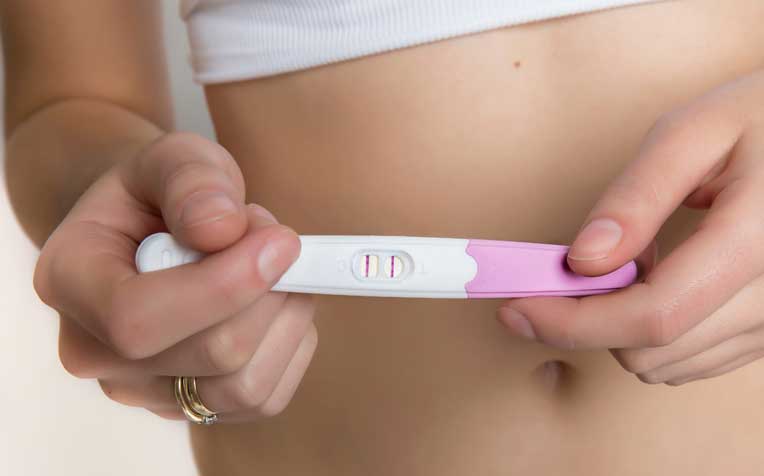HealthXchange will NEVER ask you to transfer money over a call. If in doubt, call the 24/7 ScamShield helpline at 1799, or visit the ScamShield website at www.scamshield.gov.sg.
Pregnancy Test Kit: How Accurate Is It?

Pregnancy test kit For accuracy, you should take your pregnancy test using your first morning urine.
A pregnancy test kit works by detecting the amount of human chorionic gonadotrophin (hCG) in urine. The Department of General Obstetrics and Gynaecology (O&G), KK Women’s and Children’s Hospital (KKH), a member of the SingHealth group, explains more.
How accurate are pregnancy test kits?
A pregnancy test kit is rarely wrong. It is more than 99 per cent accurate. Thus, if your test is negative, it means that you are not pregnant; However, if you are very early in your pregnancy and the test is done far too early, there could be an insufficient amount of urine hCG for the test to detect.
“So, if a test comes back negative but you strongly suspect that you are pregnant, repeat the test in a few days’ time,” advises the Department of O&G.
There are rare examples when the hCG level is raised transiently and then drops to zero. This is known as a “biochemical pregnancy” and could be the cause of a false positive result of the test kit. However, this initial rise of the hCG level will soon drop in a “biochemical pregnancy” and result in a negative urine pregnancy test.
“In a ‘biochemical pregnancy’, vaginal bleeding will occur soon after, which will coincide with ‘delayed menses’. Rarely, there could be ovarian tumours which secrete hCG and the false positive result could be wrongly interpreted as a pregnancy.”
Pregnancy test kits: Frequently asked questions
-
Do I have to test with first morning urine?
Although you can test any time of the day, your first morning urine specimen is usually the most concentrated of the day and would have the most pregnancy hormone in it. -
When should I take the test if I suspect that I am pregnant?
You can test your urine as early as six days past ovulation, but the first day of your missed period is recommended for greatest accuracy. -
Do I need a blood test for hCG to confirm my pregnancy?
Blood tests for hCG are more accurate and they can also measure the actual levels of the hormone. These tests may be useful to differentiate a miscarriage when the blood hCG will drop with time, or a healthy pregnancy when the blood hCG level will double every two days. “Occasionally, we need to follow-up the hCG levels to help us diagnose early ectopic pregnancy (pregnancy outside the womb), which could be potentially life-threatening,” says A/Prof Tan.
"The New Art and Science of Pregnancy and Childbirth", a pregnancy book by KK Women's and Children's Hospital (KKH), a member of the SingHealth group.
Find out how pregnancy test kits work on the previous page.
Ref: S13
Related Articles
Conditions & Treatments
Public Events
Get the Health Buddy App
© 2025 SingHealth Group. All Rights Reserved.

















 Get it on Google Play
Get it on Google Play